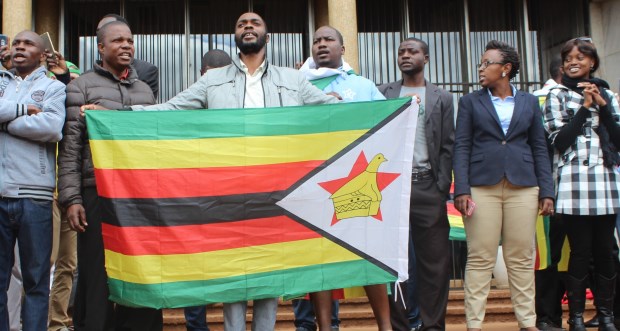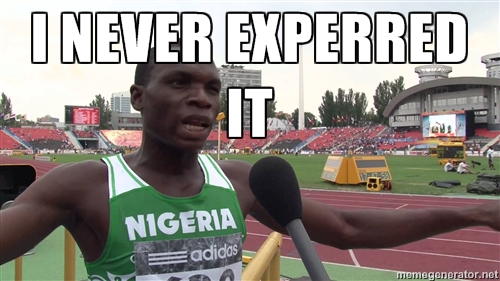The story of Zimbabwe as an oppressive regime is one with which most of us are familiar. In neoliberal, and predominantly white spaces, the narrative of Zimbabwe being the benchmark of fear for South Africa’s political future – with Mugabe being the living embodiment of an evil, ignorant and ruthless dictator – is sacrosanct. One would be hard pressed to find many exposed to mainstream media who’ve not bought into this understanding, to some degree.
But for many in “radical” South African spaces – where individuals are critical of Western imperialism, decry neoliberalism and perhaps favour notions of Pan Africanism – this isn’t the Mugabe and Zimbabwe that is familiar to us.
For many, Mugabe is a badass. He’s the hero who spits in the face of white supremacy, speaks out against Eurocentric hegemony, racialised inequality, neo-colonialism and tells presumptuous whiteness to take a seat. And he’s unapologetic about it.
He’s basically Juju before Juju started moderating himself to endorse broader appeal.
As for his intelligence and education: the guy has 18 degrees – 7 academic, 11 honorary, three revoked – making him amongst the most highly qualified presidents in the world.
Oh, and did I mention he got the land back?
Imperialistic regime change?
It is no surprise then that there is skepticism surrounding the objectives of the #ThisFlag movement. Besides the Secretary General of the ANC, Gwede Mantashe, warning people that the Zimbabwean unrest is likely due to “sponsored elements seeking to affect regime change” – making this probably the 28th “third force” they’ve blamed in the last year – others have also been speaking out against the movement.
For some beautifully ironic reason, the vocally anti-ANC movement Black First Land First (BLF) have ostensibly sided with ANC leadership on the issue.
In a recent public statement BLF members Lindsay Maasdorp and Zanele Lwana described #ThisFlag as a project of imperialism, supported by colonial forces.
“The new London and Washington D.C. sponsored campaigns refuse to answer truthfully the question: who is responsible for the Zimbabwean economic crisis? They deny that there has been ongoing sanctions and the American president and chief house nigger Barack Obama has again this year extended the economic terrorism against Zimbabwe. Do the #ThisFlag campaigners not know this or are they themselves taking instructions from London and Washington D.C.?” they said.
Another vocal radical Pastor Xola Skosana, leader of the Way of Life Church in Khayelitsha, echoed similar sentiments in a recent Facebook post.
“All revolutionary governments which resisted the west, suffered under the hands of economic “hit men” sent by the CIA. Venezuela, Libya just to mention a few. All evidence in Zimbabwe points to Regime Change theory,” he said.
Most importantly though, on Tuesday 20th July, President Mugabe finally spoke out against the catalyst of the #ThisFlag movement, Pastor Evan Mawarire, saying that he and other protestors are sponsored by foreign agendas.
“The Mawarires, if they don’t like to live with us, let them go to those who are sponsoring them, to the countries that are sponsoring them,” said Mugabe.
It’s a bit awkward that Pastor Mawarire is currently in South Africa.
Liberation from oppressive regime?
However, many also strongly disagree with the views above and accuse “third force” supporters of partaking in conspiracy theory, attempting to derail legitimate dissent or being blindsided by narrowly defined political convictions.
The new Bikoist and Fanonists believe the means justify the ends, Mugabe can crush Blacks coz he got the land back. Mmkk
— Nomalanga Mkhize (@NomalangaSA) July 13, 2016
Perhaps a relevant lesson from intersectionality in relation to this is that we are politically complex – of being able to be both the oppressed and the oppressor. In understanding this, there is no contradiction in Zimbabwe being a site under fire from neoliberal forces and currently under the rule of a revolutionary-turned-authoritarian patriarch. While this is a notion that some – mostly those who reject feminism as a “western construct” tend to reject, the logic matches the most relevant source of evidence we have at our disposal: the voices of Zimbabweans themselves.
For example, Shingirai Muzembe, born in Bulawayo, said that police (and thus state) violence is a systemic problem in Zimbabwe: “We have a country where people will just wake up and decide, ok let’s just arrest and abduct people. People just disappear. The rule of law is being abused “ the police are actually enemies of the people, they’re not protecting us anymore. So we’re saying, what is happening to our country?”
These sentiments of corruption and fear are reaffirmed by Munashe Masango, a 20-year-old student from Mutare, $15 billion just disappeared. How can that just happen? You know right now most people in Zimbabwe are afraid, because Mugabe kills a lot of people. So if you’re an activist you’ll die.”
In fact, many Zimbabweans themselves are directly speaking out against “third force” narratives.
“We’re done with the narrative of the movement being about Western imperialistic powers trying to capture the country. Man we have heard it so many times! I’m here in my own capacity. No one is funding me. No one is funding us. These are citizens who are tired in their personal capacity – there’s no mythical white man pulling the veil. It’s the government, they are the villains in this story,” said Nobukhosi Zulu, a 27-year-old lawyer from Bulawayo.
Political complexity
While conclusive evidence for intended regime change has yet to be provided beyond theory, it is plausible – and in my view, likely – that Zimbabwe’s economic crisis is influenced by soft power forces laying down on the country. Western imperialism cannot, however, fully account for the authoritarian and oppressive experiences and systemic issues of corruption and state violence, spoken of by Zimbabweans. This is important, because it is Zimbabweans themselves that are the ones facing the actual situation in the country.
As South Africans, our nationality holds a position of power relative to other African countries to the extent that many even refer to us as the imperialists of Africa. The moment we start dictating the terms of others’ struggles, we not only deprive others of agency, but also employ indirect force over their options. This is lowkey authoritarian in itself.
But perhaps most relevant to accusations of “third forces” and being “sponsored by foreign elements”, are the experiences here at home of attempts to silence legitimate dissent. This very tactic has been used against grassroots movements such as #RhodesMustFall, #FeesMustFall and Abahlali Basemjondolo. It has also been used to shirk the state’s accountability for the political unrest – most recently xenophobic violence and the Tshwane and Vuwani protests. Historically, these very labels were used against Steve Biko and the Black Consciousness movement by the apartheid regime. With this in mind, how is it that we can so easily disregard the voices of the people to partake in abstract theorising – which for some seems partly motivated by a romanticisation of Mugabe as an anti-imperialist icon?
Thus, while being deeply vigilant over imperialistic agendas, we ought to be wary of silencing the voices of people just because they do not neatly fit into our political narrative. For when we do, we are in danger of coming to value our political agendas over the lives they are meant to liberate.
Or, maybe this is just simply another case of black nationalists looking for any excuse to, once again, overlook the reality of the violent patriarchs amongst us.










